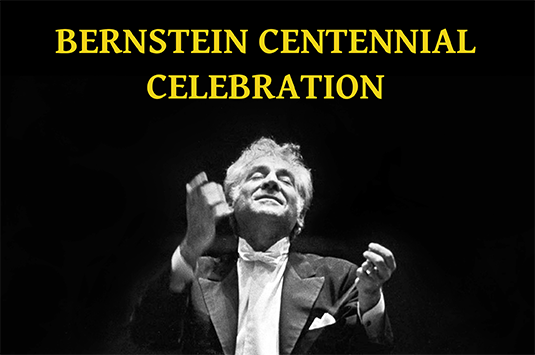
Performer. Composer. Teacher. These three descriptions of world-renowned musician Leonard Bernstein, who was born 100 years ago this year, are celebrated in a new exhibit on display on the 4th floor lobby of the Walter C. Langsam Library now through the end of the calendar year. The exhibit includes biographical and professional information about Bernstein, recordings, books and images. It corresponds with a display in the Albino Gorno Memorial (CCM) Library of additional Bernstein materials and recordings.
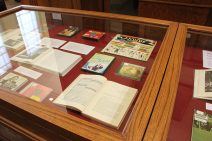 The exhibit was designed by UC Libraries communication co-op student Sophia Yu with assistance from co-op student Sam Kane. It was curated by Jenny Doctor, head of the CCM Library, and Paul Cauthen, assistant music librarian, and produced by Melissa Cox Norris, director of library communications.
The exhibit was designed by UC Libraries communication co-op student Sophia Yu with assistance from co-op student Sam Kane. It was curated by Jenny Doctor, head of the CCM Library, and Paul Cauthen, assistant music librarian, and produced by Melissa Cox Norris, director of library communications.
For more about Leonard Bernstein, read the full exhibit text below by Jenny Doctor. Interested in attending a Leonard Bernstein Concert, visit https://ccm.uc.edu/boxoffice/bernstein-festival.html, to learn about how CCM is celebrating Leonard Bernstein at 100!
*******************************
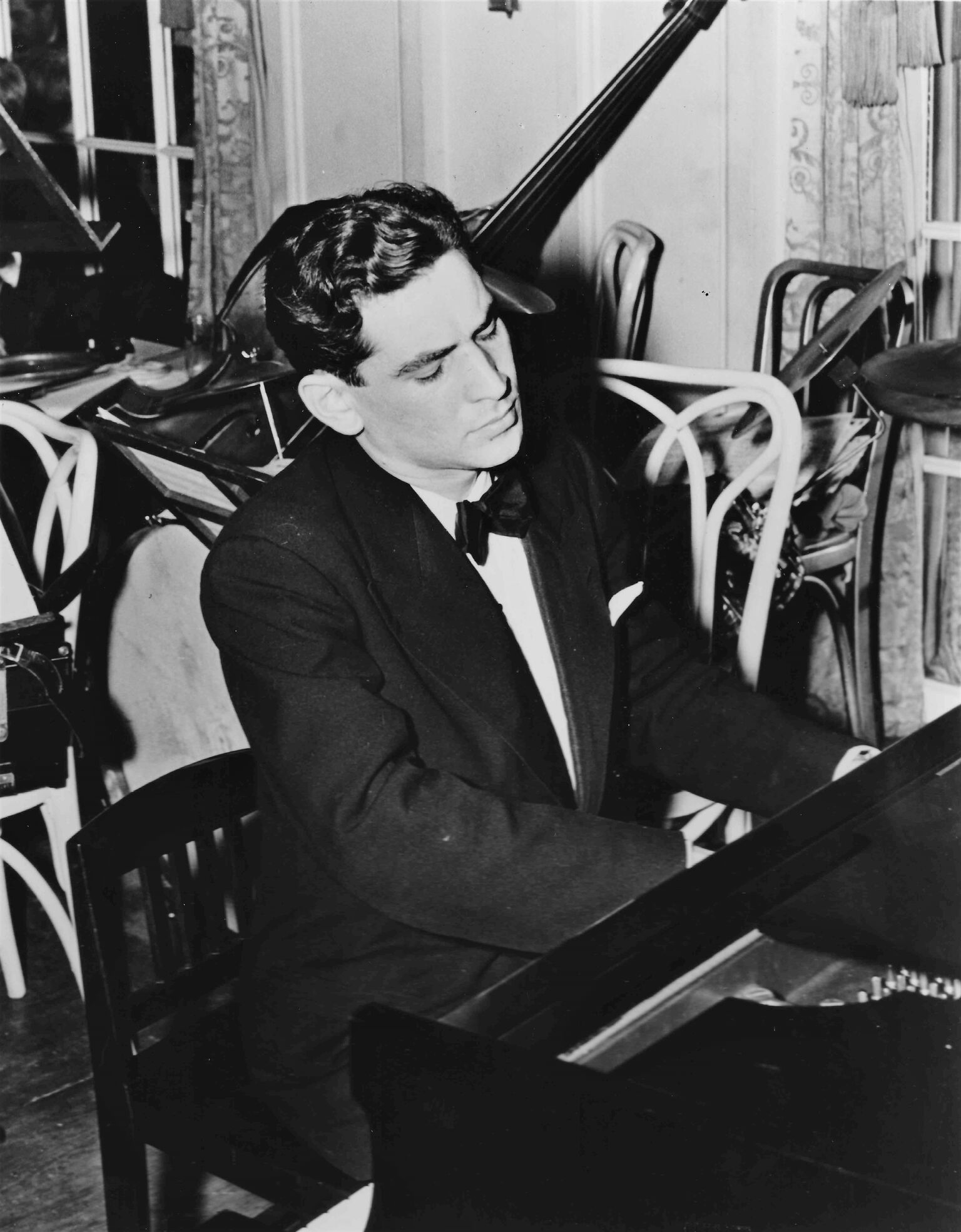 AS A PERFORMER
AS A PERFORMER
As a conductor, Bernstein was associated from the early 1940s with the New York Philharmonic, leading many concerts with that esteemed orchestra as Music Director (1958–69) and Laureate Conductor (from 1969 on). He conducted concerts with most of the world’s leading orchestras, including the Israel Philharmonic. He recorded extensively throughout his career, primarily for the label Columbia Masterworks Records on LPs (vinyl Long-Playing records), and many of these performances have been digitally remastered and reissued by Sony on CDs and DVDs. Bernstein was awarded 16 Grammys for his recordings, and was awarded a Lifetime Achievement Grammy in 1985.
Bernstein the conductor was a leading advocate of American composers, especially known as a close, life-long friend of Aaron Copland. He was best remembered for his performances of Gustav Mahler in the 1950s, renewing audience and performer interest in Mahler’s works.
Bernstein was also a skilled pianist, and often conducted piano concertos by Beethoven, Mozart, Ravel, and Shostakovich from the keyboard. He recorded music by American composers, including Copland’s Piano Sonata (1947), Gershwin’s Rhapsody in Blue (1959), and his own songs and solo piano works, and accompanied the celebrated classical singers, Dietrich Fischer-Dieskau, Christa Ludwig, and Jennie Tourel.
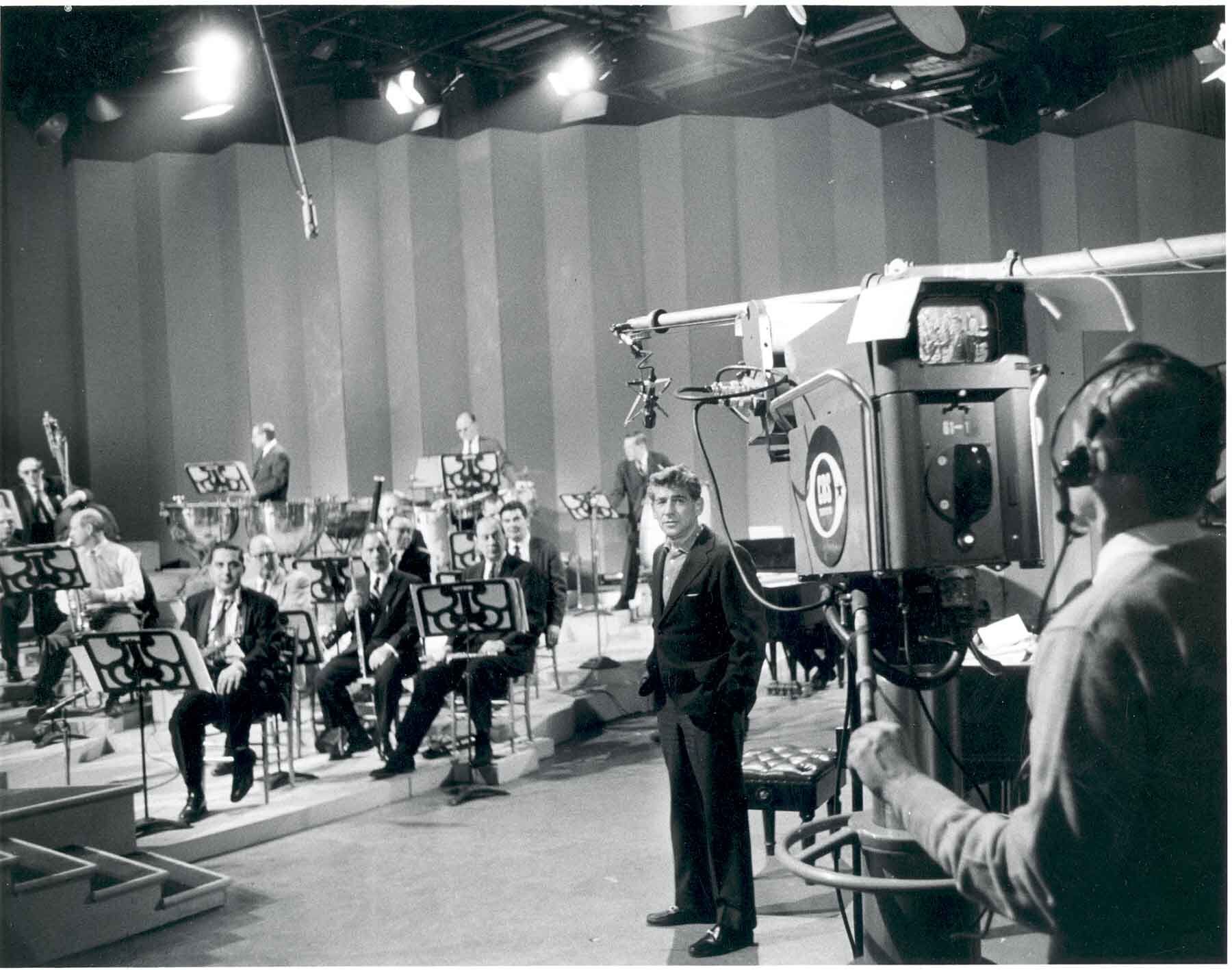
AS A TEACHER
As a teacher, Bernstein was closely associated with the orchestral and conducting departments at the Boston Symphony Orchestra’s summer music academy, the Tanglewood Music Center, where Bernstein studied with the Center’s founder, Serge Koussevitsky in the 1940s. Bernstein later taught at Tanglewood for many years, and was also a faculty member at Brandeis University in Boston.
Significantly, Bernstein was the first conductor to use the rising medium of television to reach new audiences, raising awareness about classical music. Starting in 1954, he created segments about classical music for the groundbreaking Omnibus series on CBS, hosted by Alistair Cooke. In 1958 Bernstein convinced CBS to air his children’s concerts, and for a time his Young People’s Concerts with the New York Philharmonic were on CBS prime time television. As Bernstein’s daughter, Jamie, describes, “All over America, families gathered in their living rooms in front of their big, bulky black & white TV sets, and watched Leonard Bernstein tell them all about classical music.” This series extended over fourteen seasons. Bernstein also made appearances on the PBS Great Performances series, including the acclaimed eleven-part “Bernstein’s Beethoven.”
Bernstein’s writings were published as follows:
- The Joy of Music (New York: Simon and Schuster, 1959)
- Leonard Bernstein’s Young People’s Concerts, drawings by Isadore Seltzer (New York: Simon and Schuster, 1961)
- The Infinite Variety of Music (New York: Simon and Schuster, 1966)
- Findings (New York: Simon and Schuster, 1982)
- The Unanswered Question: Six Talks at Harvard (Cambridge, MA: Harvard University Press, 1976) includes six lectures that he gave at Harvard University (1972–3) as the Charles Eliot Norton Professor of Poetry, which were subsequently published and televised.
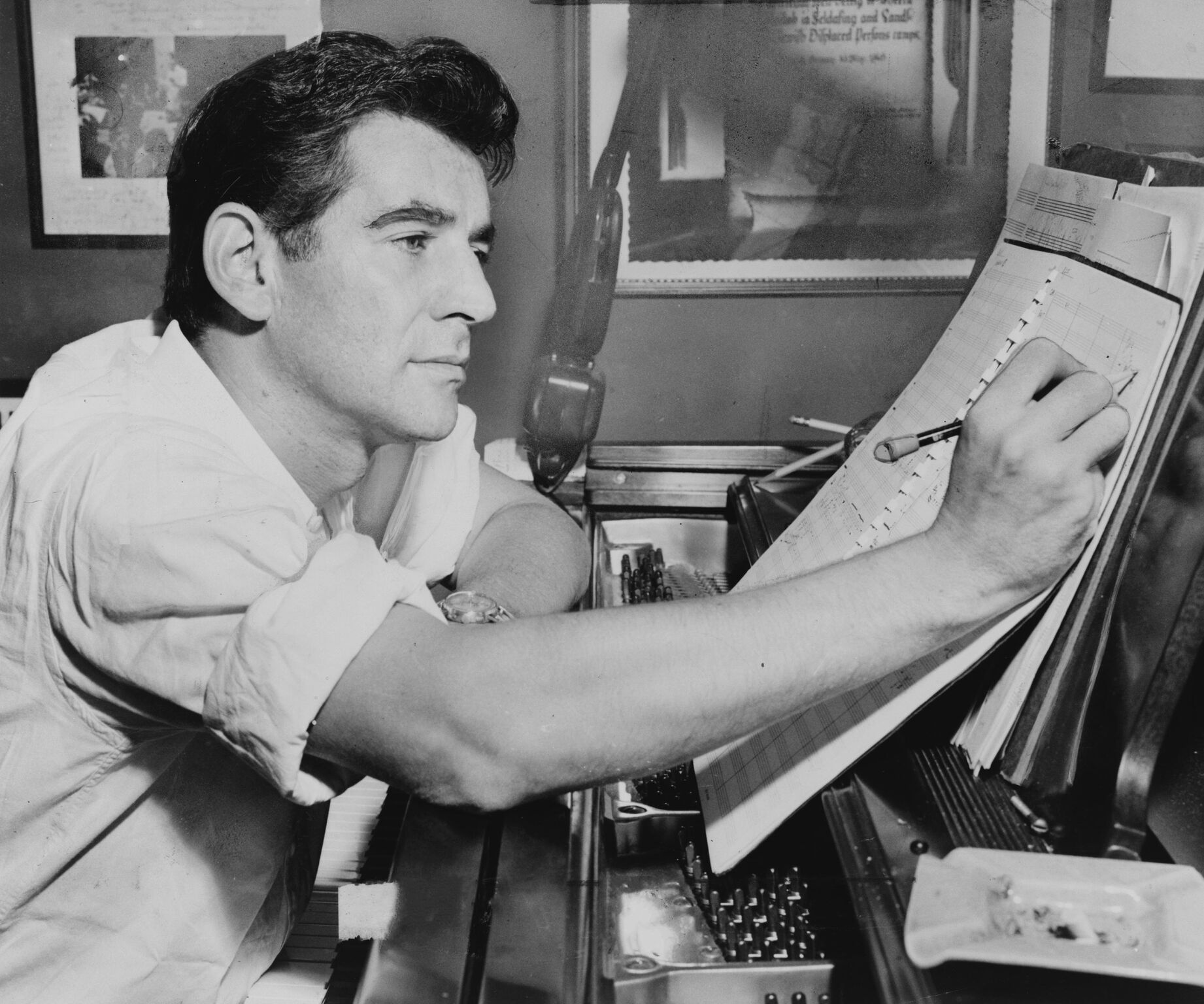 AS A COMPOSER
AS A COMPOSER
Bernstein’s significance and stature flows to us today in 2018, a century after his birth, perhaps most vigorously from the music he composed. As a composer who identified deeply and sensitively with his American, Jewish, and Russian roots, he was unusually versatile, writing successfully for symphony orche
stras, small ensembles, Broadway plays and musicals, film scores, and opera houses. As a critic noted, to Bernstein “there was no classical music – it was the world’s music and it belonged to everyone.” Regardless of genre, common to his compositions can be heard what conductor John Mauceri describes as “the rhythmic propulsion of a great American urban landscape. He has left us an aural image of his time and place, and an eternal voice of humanity.”
Bernstein’s compositions for stage and film encompass:
- Opera: one-act opera Trouble in Tahiti (1952), and its sequel, the three-act opera A Quiet Place (1983);
- Ballet: collaborations with choreographer Jerome Robbins on three major ballets, Fancy Free (1944), Facsimile (1946) for American Ballet Theater, and Dybbuk (1975) for the New York City Ballet;
- Film score: On the Waterfront (1954);
- Incidental music for Broadway plays: Peter Pan (1950) and The Lark (1955);
- Hit musicals for the Broadway stage, including:
- On the Town (1944) and Wonderful Town (1953), in collaboration with Betty Comden and Adolph Green,
- Candide (1956), in collaboration with Richard Wilbur and Lillian Hellman, later revised in association with Hugh Wheeler, Stephen Sondheim, and others.
- West Side Story (1957), in collaboration with Jerome Robbins, Stephen Sondheim, and Arthur Laurents (also made into the Academy Award-winning film).
- 1600 Pennsylvania Avenue (1976), in collaboration with Alan Jay Lerner.
Bernstein’s concert works encompass:
- Vocal music, including:
- La Bonne Cuisine: Four Recipes for voice and piano, 1948
- Chichester Psalms for boy soprano (or countertenor), mixed chorus, and orchestra, 1965
- Songfest: A Cycle of American Poems for six singers and orchestra, 1977
- Piccola Serenata, 1979
- Choral music, including:
- Missa Brevis for mixed chorus and countertenor solo, with percussion, 1988
- Theatre piece for singers, players and dancers:
- MASS, 1971, commissioned by Jacqueline Kennedy for the opening of the Kennedy Center for the Performing Arts in Washington, DC, this fusion of different religious traditions (Latin liturgy, Hebrew prayer, and contemporary English lyrics) and musical styles (classical and rock music) is partly intended as an anti-war statement.
- Orchestral music, including:
- works inspired by his Jewish heritage, including the Symphony No. 1 “Jeremiah” (1943) and the Symphony No. 3 “Kaddish” (1963), premiered by the Israel Philharmonic Orchestra and dedicated “to the beloved memory of John F. Kennedy”;
- Slava! A Political Overture, 1977
- Divertimento for orchestra, 1980
- Halil, nocturne for solo flute, piccolo, alto flute, percussion, harp and strings, 1981
- Chamber music, including
- Brass Music, 1959
- Prelude, fugue and riffs : for solo clarinet and jazz ensemble, 1974
- Dance Suite, 1988
- Variations on an Octatonic Scale for recorder and cello, 1988
Exhibit text by Jenny Doctor
